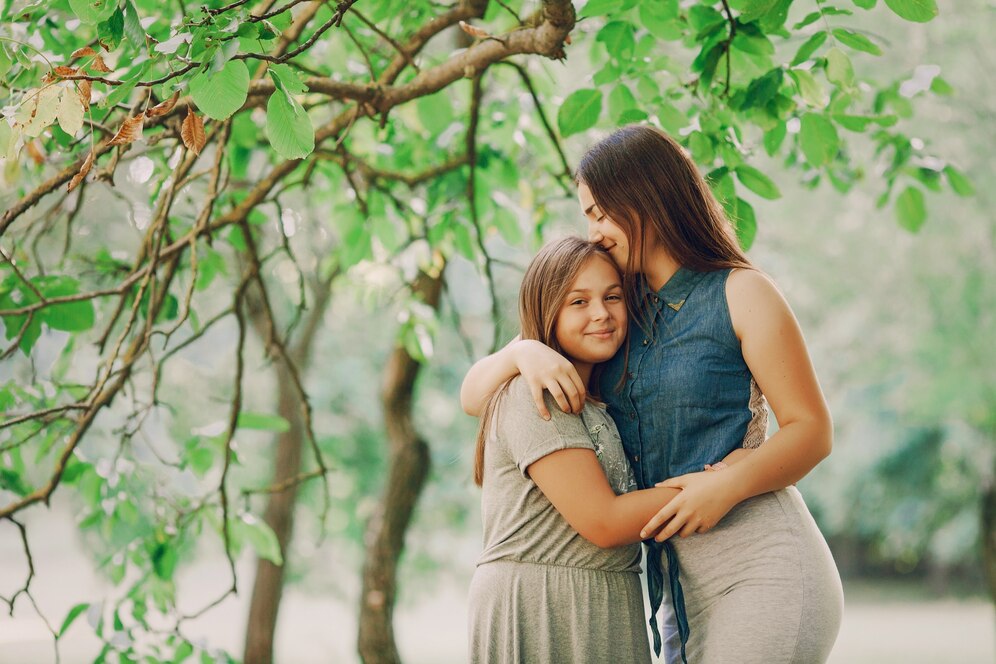
Understanding Puberty Anxiety and How to Help
When Growing Up Feels Overwhelming
“Why am I crying all the time?” “Why do I feel weird and don’t want to go to school anymore?” “Am I going mad?”
If your child has started asking questions like these — or showing signs of worry, sadness, or fear — they may be experiencing puberty anxiety.
It’s not uncommon. Puberty is a time of massive change, not just physically, but emotionally and mentally. Hormones are surging, bodies are changing, friendships are evolving, and identity is taking shape. That’s a lot for anyone to process, let alone a tween or young teen.
In this article, you’ll learn:
- Why does anxiety spike during puberty
- The signs to look out for
- How to begin managing puberty stress
- Practical steps to provide effective emotional puberty support
You don’t need to have all the answers — just the willingness to listen, validate, and guide.
Why Anxiety Increases During Puberty

The Science Behind It
Puberty triggers a flood of hormones — including oestrogen, progesterone, and testosterone — which directly affect areas of the brain that control mood, decision-making, and stress response.
This includes:
- The amygdala (the brain’s fear centre)
- The prefrontal cortex (not fully developed until the mid-20s)
What does that mean for your child? They may:
- Overreact to stress
- Struggle to self-regulate
- Experience irrational fears or sadness without a clear reason
What Puberty Anxiety Looks Like
Not all anxiety presents as panic attacks. It can be subtle and easily mistaken for “attitude”, laziness, or moodiness.
Common signs of puberty-related anxiety include:
- Avoiding school or social activities
- Overthinking or asking constant “what if” questions
- Difficulty sleeping
- Stomach aches or headaches with no medical cause
- Excessive need for reassurance
- Withdrawing from family or friends
- Irritability or anger over small issues
If these behaviours are frequent and affecting daily life, they may be signs of emotional puberty distress, not just typical growing pains.
How to Talk About Puberty Anxiety With Your Child
1. Start With Empathy
You don’t need to fix things straight away. Begin by listening.
“I’ve noticed you’ve seemed a bit worried lately. Want to talk about it?”
Avoid dismissive phrases like:
- “You’re too young to be stressed.”
- “Don’t be silly.”
- “It’s just a phase.”
Instead, validate their experience:
“That sounds hard. I’m here to help you figure it out.”
2. Use Relatable Analogies
Sometimes, anxiety feels too big or too abstract to name. Use metaphors to help them express what they’re feeling:
- “Does it feel like your brain has too many tabs open?”
- “Is your mind like a washing machine on spin cycle?”
- “What colour is your mood today — red like angry or grey like tired?”
These questions help unlock emotion when words are hard to find.
3. Normalise the Conversation
Let them know:
- They’re not alone
- Many children feel like this during puberty
- They’re not broken or weird
Mention:
“Lots of kids your age feel anxious during big changes. It doesn’t mean anything is wrong with you — it means you’re human.”
Practical Ways to Support Emotional Well-being During Puberty
Build a Calm-Down Toolkit
Give your child strategies to manage stress in the moment. Try:
- Deep breathing (e.g. 4-7-8 method)
- Counting objects of a colour around them
- Squeezing a stress ball
- Listening to calming music
- Guided meditation apps (e.g. Calm, Headspace for Kids)
Keep a “calm box” with fidgets, affirmations, drawing tools, and scent roll-ons.
Encourage Healthy Routines
Stability and predictability can dramatically reduce anxiety.
Focus on:
- Regular sleep schedule (9–11 hours for tweens/teens)
- Nutritious meals and hydration
- Daily movement or exercise
- Limiting screen time (especially before bed)
Foster Emotional Literacy
Help them name and navigate feelings.
Try:
- Emotion wheels or charts
- “Highs and lows” check-ins at dinner
- Mood trackers or apps
- Journaling or creative outlets (poetry, art, music)
Ask:
“Where in your body do you feel your anxiety today?” “What would help you feel 1% better right now?”
Teach Coping Statements
Anxiety thrives on catastrophic thinking. Teach them to reframe with positive self-talk:
- “This feeling won’t last forever.”
- “I’ve felt like this before, and I got through it.”
- “I don’t have to believe every scary thought.”
Model this language yourself — kids mirror your coping style.
Create Safe Communication Spaces
Let your child know they can always come to you, no matter what.
Make it easier by:
- Talking during shared activities (e.g. driving, walking, cooking)
- Avoiding judgment or lectures
- Asking open-ended questions: “What’s been the hardest part of your week?”
What to Do When Anxiety Becomes Overwhelming

Recognise When to Seek Help
If your child’s anxiety:
- Lasts more than 2 weeks
- Disrupts school, friendships, or daily function
- Leads to physical symptoms like nausea or dizziness
- Involves self-harm or talk of not wanting to live
Contact your GP or a mental health professional immediately.
There’s no shame in getting help. In fact, it’s a powerful step toward healing.
Real-Life Stories: You’re Not Alone
“The School Refuser”
“My son suddenly didn’t want to go to school — he’d cry and complain of stomach aches. At first, I thought it was defiance. But after speaking with a counsellor, we realised it was anxiety around social dynamics and tests. He’s now in therapy and thriving.”
“The Night-Time Spiral”
“My daughter became terrified at bedtime. She’d ask, ‘What if something bad happens?’ It broke my heart. We started using a white noise machine, bedtime affirmations, and set up weekly ‘worry talks’. It’s made a huge difference.”
Common Puberty Anxiety Triggers
Here are some areas to watch for:
- Body Image Worries
- Weight changes, acne, breast/testicle development, or feeling “behind” peers
- Tip: Reassure them that everybody develops at their own pace.
- Academic Pressure
- Increased workload, fear of failure
- Tip: Focus on effort, not results.
- Social Anxiety
- Peer pressure, new friendships, and fear of exclusion
- Tip: Teach assertive communication and how to set boundaries.
- Romantic or Identity Exploration
- Crushes, gender identity, or sexual orientation
- Tip: Create a non-judgmental space to talk.
- Hormonal Imbalance
- PMS or mood swings that mimic anxiety
- Tip: Track cycles and consult a GP if symptoms are severe.
Phrases That Reassure and Support
- “You are not your thoughts.”
- “This feeling is strong, but you are stronger.”
- “Let’s figure this out together.”
- “I believe you, and I’m here for you.”
Use these often. Repeat them. Make them part of your child’s inner dialogue.
Conclusion: Growing Minds Need Gentle Guidance

Puberty anxiety is real. It’s not just “teenage drama” — it’s a natural but intense emotional shift that deserves attention, compassion, and support.
By:
- Listening without judgment
- Equipping your child with coping tools
- Creating space for emotional exploration
- Getting professional help when needed
…you’re not just helping them manage stress — you’re building emotional resilience that lasts a lifetime.
Let’s Connect
Have you noticed signs of anxiety in your child during puberty? Share your experience or ask a question in the comments below. Subscribe for more research-backed, parent-friendly puberty support guides. Know another parent who could use this? Forward it — it might be the reassurance they need today.


